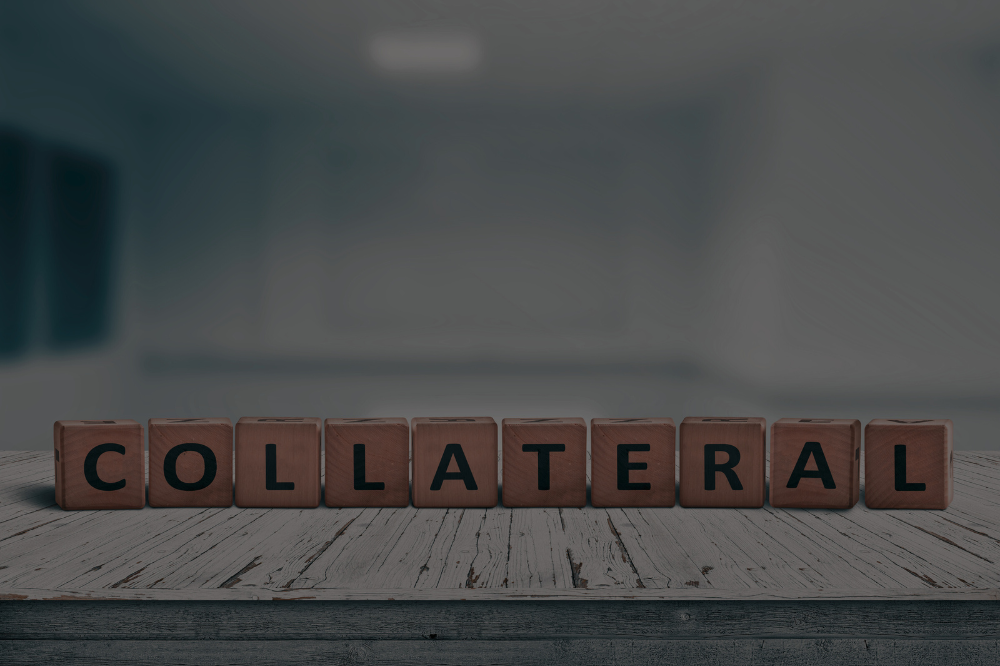Are you looking into getting a loan? Did you know some require collateral? Do you know what it is? Find out the answer to these questions!
When looking for a loan, you might stumble upon the term “collateral”. But do you know exactly what it is and how it impacts your borrowing options? Well, that’s what you are about to find out!
Let’s talk about it, its impacts, and your options, so you can make the best decision for you! Also, if you want to check out more financial tips on our website, you can click on this link!
What Is Collateral?
In essence, it is a valuable asset that you pledge as security for a loan. It acts as a guarantee for the lender, mitigating their risk in case you fail to repay the borrowed funds. If you default on the loan, the lender has the legal right to seize and sell the collateral to recoup their losses.
Think of it this way: it serves as a safety net for the lender. By offering a valuable asset, you demonstrate your commitment to repaying the loan and incentivize the lender to offer you better loan terms.
How Does It Work?
- Loan Application: during the loan application process, you’ll indicate the type and value of the collateral you’re willing to pledge;
- Lender Appraisal: the lender will assess the value and marketability of your proposed collateral. This often involves an appraisal for assets like real estate or a verification of ownership for items like vehicles;
- Loan Approval (if applicable): if the lender deems your collateral sufficient to cover the loan amount and risk, they’ll approve your loan application;
- Collateralization: as part of the loan agreement, you’ll legally transfer ownership rights of the collateral to the lender until the loan is fully repaid.
Pros and Cons
Pros:
- Lower Interest Rates: you reduce the lender’s risk, potentially qualifying for lower interest rates compared to unsecured loans;
- Higher Loan Amounts: lenders may be more comfortable offering larger loan amounts;
- Improved Creditworthiness: successfully repaying it can positively impact your credit score and improve your creditworthiness in the long run.
Cons:
- Risk of Losing Collateral: if you default on the loan, you risk the lender seizing and selling your collateral to recoup their losses;
- Restrictions on Collateral: the lender might have limitations on how you can use your collateral while the loan is outstanding;
- Potential for Debt Burden: can lead to a larger debt burden if you’re not careful about managing your repayments.
Do All Loans Require Collateral?
Not all loans require collateral. There are unsecured loans, which relies solely on your creditworthiness to determine loan approval and interest rates. However, unsecured loans often come with higher interest rates due to the increased risk for the lender.
Types of Collateral Loans
- Mortgages: when you buy a home, the property itself serves as collateral for the mortgage loan. If you default, the lender can foreclose on the property;
- Auto Loans: similarly, car loans use your vehicle as collateral. In case of default, the lender can repossess the car;
- Secured Personal Loans: you can use various assets like savings accounts, certificates of deposit (CDs), or investment portfolios as collateral for personal loans. These often offer lower interest rates compared to unsecured personal loans;
- Pawn Loans: pawn shops offer short-term, high-interest loans with personal belongings like jewelry or electronics as collateral. If you fail to repay within the stipulated timeframe, the pawn shop retains ownership of the pawned item.
What Can I Use as Collateral on a Loan?
The type of collateral you can use depends on the lender and loan type. Here are some common options:
- Real Estate: homes, land, or other buildings can be used as collateral for mortgages, home equity loans, and some lines of credit;
- Vehicles: cars, motorcycles, boats, and RVs can be used as collateral for auto loans and some secured personal loans;
- Valuable Possessions: jewelry, precious metals, and certain high-value collectibles might be accepted as collateral for pawn loans or secured personal loans from specific lenders;
- Investments: assets like stocks, bonds, or mutual funds held in a brokerage account can sometimes be used as collateral for margin loans or secured lines of credit;
- Savings and Certificates of Deposit (CDs): these can be used as collateral for some secured personal loans, but the lender may limit the loan amount based on the account balance.
How to Get a Loan Without Collateral
- Co-signer Loans: a co-signer is someone with good credit who agrees to be responsible for repaying the loan if you default. Having a co-signer with a strong credit history can significantly improve your chances of loan approval and potentially qualify you for a lower interest rate;
- Peer-to-Peer (P2P) Lending: P2P lending platforms connect borrowers with investors willing to lend money directly. These loans can be unsecured or secured, depending on the platform and lender. Carefully evaluate the interest rates and terms offered by different P2P lenders before committing to a loan;
- Payday Alternative Loans (PALs): offered by credit unions, PALs are small, short-term loans designed as an alternative to payday loans. They typically have lower interest rates and fees compared to payday loans, making them a safer and more affordable option for short-term borrowing needs;
- Credit Builder Loans: designed to help borrowers with limited credit history establish or improve their credit score, credit builder loans are small loans that you repay over a specified period. The lender typically holds the loan funds in a secured account until the loan is fully repaid, and then reports your on-time payments to credit bureaus.

